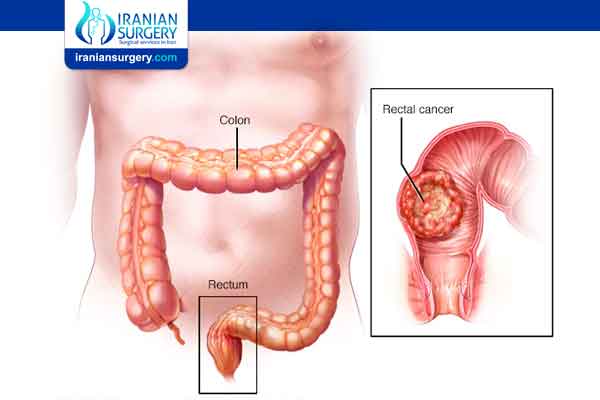What causes rectal cancer?
What is the first sign of bowel cancer?
What does bowel cancer poop look like?
What are the symptoms of bowel cancer in a woman?
Colon cancer prevention
Mistakes in DNA can cause cells to grow out of control. Faulty cells pile up to form tumors. These cells can penetrate and destroy healthy tissue. What sets off this process isn’t always clear.
There are some inherited gene mutations that can increase risk. One of these is hereditary nonpolyposis colorectal cancer, known as Lynch syndrome. This disorder raises the risk of colon and other cancers, especially before age 50.
Another such syndrome is familial adenomatous polyposis. This rare disorder can cause polyps in the lining of the colon and rectum. Without treatment, it can raise the risk of colon or rectal cancer, especially before age 40.
Other risk factors for rectal cancer are:
- age: diagnosis usually occurs after age 50
- race: African-Americans are at higher risk than people of European descent
- personal or family history of colorectal cancer
- previous radiation treatment to the abdomen
Other conditions that may increase risk include:
- ovarian cancer
- polyps
- inflammatory bowel disease
- obesity
- type 2 diabetes that’s not well managed
Some lifestyle factors that may play a role in colorectal cancer are:
- diet with too few vegetables and too much red meat, particularly well-done meat
- lack of exercise
- smoking
- consuming more than three alcoholic drinks a week
Read more about: rectal cancer prognosis
What is the first sign of bowel cancer?
The symptoms of bowel cancer can be subtle and do not necessarily make you feel ill. However, it's worth trying simple treatments for a short time to see if they get better.
More than 90% of people with bowel cancer have 1 of the following combinations of symptoms:
- a persistent change in bowel habit– pooing more often, with looser, runnier poos and sometimes tummy (abdominal) pain
- blood in the poo without othersymptoms of piles (haemorrhoids) – this makes it unlikely the cause is haemorrhoids.
- abdominal pain, discomfort or bloating always brought on by eating– sometimes resulting in a reduction in the amount of food eaten and weight loss
Constipation, where you pass harder stools less often, is rarely caused by serious bowel conditions.
Most people with these symptoms do not have bowel cancer.
Read more about: Rectal bleeding
What does bowel cancer poop look like?
Usually, the stools (poop) of the patients with colon cancer may have the following characteristics:
- Black poop is a red flag for cancer of the bowel. Blood from in the bowel becomes dark red or black and can make poop stools look like tar. Such poop needs to be investigated further.
- Poop which is bright red may be a sign of colon cancer. Red poop may be seen in cancers of the lower intestine.
- The stools as thin as a pencil may also need investigation.
Read more about: What is stage 3 rectal cancer?
What are the symptoms of bowel cancer in a woman?
Colon cancer starts as a tiny growth in the inner wall of the colon. These growths are called polyps.
Polyps are usually benign (noncancerous), but when a cancerous polyp does form, cancer cells can move into the lining of the colon or rectum and spread. Cancer cells can also enter the bloodstream and lymph system.
In its early stages, colon cancer may have no noticeable symptoms.
When they do occur, signs of colon cancer in women tend to be the same as those seen in men, and can include:
- constipation, diarrhea, or other changes in bowel habits
- blood in stool or rectal bleeding
- abdominal pain or cramps
- a sensation that your bowel hasn’t emptied completely
- unexplained weight loss
- fatigue, weakness, or reduced energy level
Read more about: Rectal Cancer Staging
Colon cancer prevention
- Screening colon cancer
Doctors recommend that people with an average risk of colon cancer consider colon cancer screening around age 50. But people with an increased risk, such as those with a family history of colon cancer, should consider screening sooner.
Several screening options exist — each with its own benefits and drawbacks. Talk about your options with your doctor, and together you can decide which tests are appropriate for you.
- Lifestyle changes to reduce your risk of colon cancer
You can take steps to reduce your risk of colon cancer by making changes in your everyday life. Take steps to:
Eat a variety of fruits, vegetables and whole grains. Fruits, vegetables and whole grains contain vitamins, minerals, fiber and antioxidants, which may play a role in cancer prevention. Choose a variety of fruits and vegetables so that you get an array of vitamins and nutrients.
Drink alcohol in moderation, if at all. If you choose to drink alcohol, limit the amount of alcohol you drink to no more than one drink a day for women and two for men.
Stop smoking. Talk to your doctor about ways to quit that may work for you.
Exercise most days of the week. Try to get at least 30 minutes of exercise on most days. If you've been inactive, start slowly and build up gradually to 30 minutes. Also, talk to your doctor before starting any exercise program.
Maintain a healthy weight. If you are at a healthy weight, work to maintain your weight by combining a healthy diet with daily exercise. If you need to lose weight, ask your doctor about healthy ways to achieve your goal. Aim to lose weight slowly by increasing the amount of exercise you get and reducing the number of calories you eat.
Read more about: Rectal Cancer Symptoms


